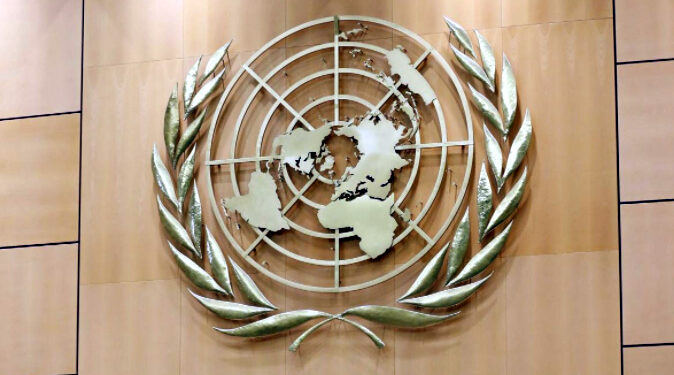by Miceál O’Hurley
NEW YORK/UNITED NATIONS – The European Union (EU) released a Statement on Wednesday, 17 November 2021, at the 76th Session of the United Nations General Assembly Third Committee prior to the vote on the Situation of Human Rights in the temporarily occupied Autonomous Republic of Crimea and the city of Sevastopol, Ukraine. The following is the European Union Explanation of Vote concerning the ongoing illegal, temporary occupation of Ukraine by Russia:
EU Explanation of Vote – United Nations General Assembly: before the vote on human rights in the temporarily occupied Autonomous Republic of Crimea and the city of Sevastopol, Ukraine New York, 17/11/2021 - 18:20, UNIQUE ID: 211117_25 Statements on behalf of the EU 17 November 2021, New York – European Union Explanation of Vote at the 76th Session of the United Nations General Assembly Third Committee before the vote on the Situation of human rights in the temporarily occupied Autonomous Republic of Crimea and the city of Sevastopol, Ukraine Chair, I have the honor to speak on behalf of the European Union and its Member States. The Candidate Countries, the Republic of North Macedonia*, Montenegro*, and Albania*, as well as Ukraine, the Republic of Moldova, and Georgia, align themselves with this statement Since the illegal annexation of the Autonomous Republic of Crimea and the city of Sevastopol by the Russian Federation, which the EU does not recognise and continues to condemn, the OHCHR has declared on several occasions that it receives credible information concerning alleged killings, arbitrary detentions, enforced disappearances, as well as torture and ill-treatment by the Russian Federation Security Service and police in Crimea of individuals deprived of their liberty both before and after their admission into places of detention. These violations and abuses of human rights are not followed by any prosecutions nor by a real will to ensure accountability. The OHCHR as well as other regional and international human rights monitoring mechanisms continue to be refused unimpeded access to Crimea and Sevastopol. The EU reiterates its full support for the territorial integrity, political independence, unity and sovereignty of Ukraine, within its internationally recognized borders. The Russian Federation continues to apply the entirety of its legislation, including criminal law, in Crimea, contrary to its obligations as an occupying Power under international law. Residents of the peninsula face systematic restrictions to their fundamental freedoms, such as the freedoms of expression, religion or belief and association, and the right to peaceful assembly. Journalists, human rights defenders and defence lawyers face interference and intimidation. The Crimean Tatars continue to be unacceptably persecuted, pressured and have their rights gravely violated. Destructive actions against the peninsula’s cultural heritage, such as archaeological treasures, artworks, museums or historical sites continue unabated. Since the illegal annexation by the Russian Federation, the human rights situation in the Crimean peninsula has significantly deteriorated. Having in mind the landmark decision of the European Court of Human Rights of 14 January 2021, the European Union calls for Russia’s full compliance with international humanitarian law, international human rights standards, and relevant UN General Assembly Resolutions. Resolution A/C.3/76/L.29 is once again a response to the significant deterioration of the human rights situation in the Crimean peninsula since its illegal annexation by the Russian Federation. For these reasons, the members of the European Union will vote YES to Resolution L.29, and respectfully ask other delegations to do so as well. Thank you. * The Republic of North Macedonia, Montenegro, Serbia and Albania continue to be part of the Stabilisation and Association Process.
In a provocative escalation following the UN General Assembly vote, Russia announced plans to deploy a new paratroop regiment on temporarily annexed Crimea in two weeks. Russia also accused Europe and NATO of escalating tensions in the region, complaining about an agreement reached between the United Kingdom to assist Ukraine’s Navy. The deal, reminiscent of the ‘Lend/Lease’ deal used to confront Nazi aggression in the last century, provides for Ukraine to access favourable loans to purchase British naval ships, missiles and equipment to protect its internationally recognised borders and assure continued freedom of navigation in the region. The deal comes on the heels of an extraordinary Russian build-up of combat forces on Ukraine’s border. Despite the unwarranted escalation on the part of Moscow, the Kremlin has complained that Ukraine and the United Kingdom are at fault for raising tensions.
The United Nations, European Union, United Kingdom, the United States, Canada and other countries have uniformly condemned Russia for its illegal invasion of Eastern Ukraine and temporary occupation of Donbas and the attempt to annex Crimea. Russia continues to have sanctions levied against it for its continued aggression in Ukraine, including almost daily breaches of an EU brokered cease-fire agreement which continues to cause loss of lives to Ukrainians. More than 13,000 have died from Russian combat operations in Ukraine since 2014.
















































